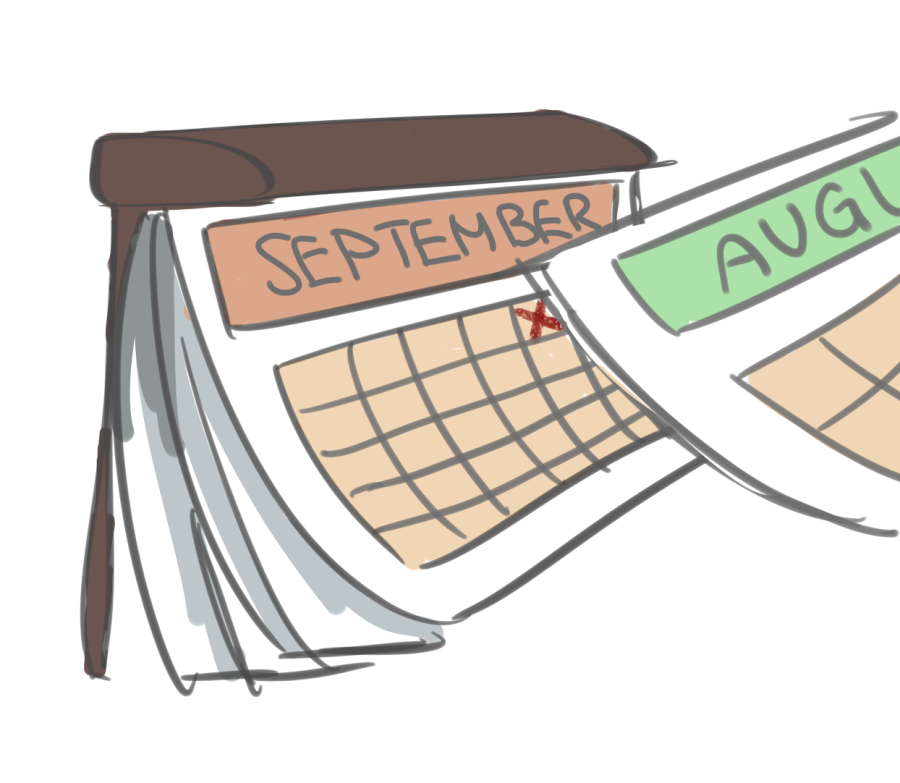Starting the School Year in August: Why It isn’t a Crazy Idea
December 20, 2015
August is universally dreaded by students across the United States. For some, the arrival of August signifies the time to finally buckle down and start that huge stack of summer homework. For others, August is much worse: it heralds the end to the dreaded countdown, the start of school.
This year, students shouldered their backpacks, trudged to the bus stop, and returned to school as early as August 5 in some school districts. At first consideration, this might seem horrible: Who wants to return to school in August, while other students have another full month to relish?
It turns out that this might not be such a bad idea for Ridge to adopt.
In the southern and western United States, middle and high schools have a higher tendency to start in August, in accordance to traditional agrarian calendars. In contrast, the majority of schools in New England start after Labor Day, in the beginning or middle of September. For example, this year, Ridge started on September 8. The prevalence of New England schools reconvening after the summer arose from schools trying to accommodate wealthy families, who would often go away on vacation for the entire summer and only return around the end of August. This practice has become fairly antiquated – so why are schools still retaining the habit of starting so late in the year?
Schools that begin in August rather than September do not necessarily have more school time. Because of teacher contracts, the number of days of school will mostly remain the same, even if they are more spread out. If school starts earlier, not only will it end earlier, but also there will be new room to fit in breaks and vacations spread throughout the academic year.
The main argument for starting schools earlier is that it allows teachers more time to prepare their students for the rush of standardized tests, AP exams, and SAT subject tests that occurs towards the end of the school year. AP Macroeconomics and Government teacher Ms. Dwyer concurs: “As an AP teacher, I think in a school that offers many, many AP courses, it is a distinct disadvantage that Ridge starts after Labor Day.”
If teachers were allowed ampler time to prepare their students for standardized tests, perhaps instruction would be less rushed and more comprehensive. Teachers would be able to teach with more flexibility, instead of having to adhere to and rush through the AP curriculum. Simultaneously, students would feel and be more prepared for the flood of AP exams and other standardized tests at the end of year, tests that have infamously caused weeks of overwhelming stress as students cram dates, concepts, and formulas into their brains.
Additionally, since Ridge ends fairly late in comparison to its counterparts—school let out on June 18 at the conclusion of the 2014-2015 school year—Ridge students are often unable to attend summer programs or internships that begin at the start of June. If Ridge started earlier, it would end earlier, making such opportunities newly available to students.
Alex Wang ’16 agrees that Ridge should start its school year earlier, both for sake of having a schedule more similar to that of other schools and for test preparation: “A lot of my friends go to schools that start and end earlier [than Ridge does], and starting earlier would give us more time to prepare for AP tests later in the year.”
A school year that begins earlier is a welcome trade-off if it results in longer and more frequent breaks. Pace the halls of Ridge High School, or just about any other high school with similarly demanding standards, and you’ll find that students are harried and stressed, running—or simply trying to get by—on what often amounts to half of the sleep recommended for teenagers, which is nine hours. Most are simply trying to hold out until the next break.
Catherine McDonnell ’17 muses, “I’d want school to start earlier if that didn’t just mean that we’d have a longer school year. I need more breaks so I can relax and stop stressing out about school for a while.”
More frequent breaks during the school year would allow students to take more breathers, to recharge on sleep and morale and approach schoolwork with more gusto. Moreover, interlacing periods of hard work with breaks allows students to travel, visit family, and accumulate experiences outside of the classroom.
Starting school earlier would only result in students that feel happier, learn more, and perform better. Isn’t that the goal of any educational institution?

